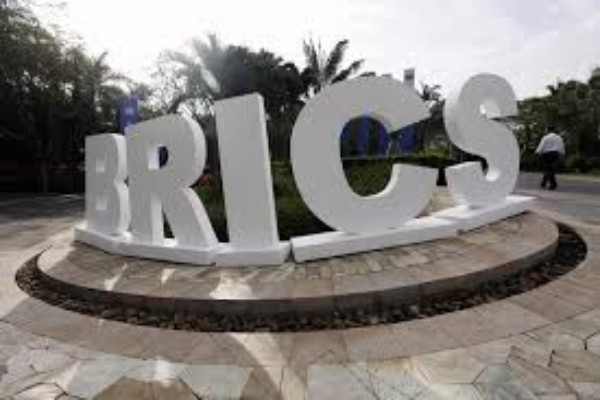
Ahead of the 17th BRICS summit in Rio de Janeiro on July 6-7, the envoys of four BRICS countries pitched for enhancing trade in local currencies and bolstering cooperation among the Global South.
“The expanded BRICS holds out the promise of reform of international institutions with inclusiveness, with the Global South exercising effective influence on its reconfiguration,” said Brazil’s ambassador Felix da Nobrega, at a discussion on BRICS in Rio organised by Centre for Global India Insights and India Writes Network, in partnership with the Embassy of Brazil in India.
“Despite the mistaken impressions of some, BRICS is not working against anyone, but exclusively in favour of the sustainable development of its members, as well as for the reform of global governance institutions.”
The summit will reflect on Brazil’s priority of “Strengthening Global South Cooperation for More Inclusive and Sustainable Governance.” It will culminate in two high-level declarations on financing the climate change regime and the governance of artificial intelligence.
Speakers reflected on the centrality of BRICS as a counterweight to Western-dominated frameworks and reaffirmed their respective countries’ commitment to democratic, inclusive, and sovereignty-respecting global governance.
India’s Priorities
“BRICS has to get its act together and find solutions for the Global South. This requires commitment, a lot of hard work, and to be able to look deep into those issues, into the future,” said Dammu Ravi, India’s BRICS sherpa and Secretary (Economic Relations) in India’s Ministry of External Affairs.
With India due to assume the BRICS presidency next year, Ravi stressed on “scalable, cooperative projects in areas of financial inclusion, bridging digital divide and clean energy”.
India he said, sees BRICS as both a development platform and a geopolitical force.
“We are not just participants — we are contributors to the very direction BRICS takes,” he noted. He emphasized that India’s successful development models — particularly in poverty alleviation, financial inclusion, and digital public infrastructure — should be viewed as templates for wider application across the Global South.
Promoting National Currencies
The envoys also backed the expansion of the use of national currencies for intra-BRICS trade. However, panelists found the idea of a BRICS common currency impractical. Dammu Ravi clarified that discussions around a BRICS common currency are still at a very early stage.
“Today, for now, we are only looking at trade settlement in national currencies. Harmonization of fiscal and monetary policies is very, very difficult to achieve,” he said.
Russia’s ambassador Denis Alipov commended efforts to diversify financial mechanisms, and backed expansion of the use of national currencies in intra-BRICS trade.
FICCI Secretary General Jyoti Vij outlined the role of BRICS Business Council in enhancing economic linkages among BRICS countries and underlined that the use of national currencies will greatly help businesses as it will help cut transaction costs.




